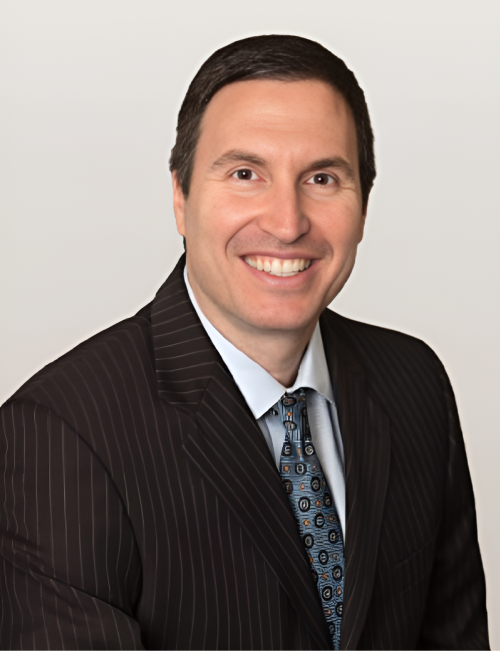If someone you love dies because of someone else's negligence or carelessness, it can be a devastating experience. Not only are you dealing with the emotional grief of losing your loved one, but the financial burden can also be overwhelming. That's why understanding wrongful death claims are so important.
Wrongful death claims provide financial relief to families and dependents who have lost a loved one due to another's negligence or wrongdoing. The claim can help to offset expenses like medical bills, funeral costs, lost wages, and other economic losses related to the death of your loved one that wouldn't otherwise have occurred.
In addition, a wrongful death claim can bring closure and justice to families who feel they have suffered an injustice due to the death of their loved one. It can provide accountability for those responsible and ensure their actions are not repeated in the future. A successful claim can also serve as public recognition that an unacceptable error or act was committed, which produced severe consequences.
What are The Common Causes of Wrongful Death?
You may be wondering what can legally justify a wrongful death claim. Well, for the most part, wrongful death claims are usually caused by someone else's negligence. This means that if another person or entity acted carelessly and did not fulfill their due diligence to prevent harm from coming to someone else—or worse if they actively made decisions that resulted in the death of an individual—it can be considered as wrongful death.
The common causes of wrongful death in Florida include:
- Medical malpractice and negligence leading to a fatal illness or injury.
- Car, truck, boating, and aviation accidents result in an individual's death.
- Exposure to hazardous chemicals results in fatal injuries or illnesses.
- Fatal injuries sustained through defective products.
- Negligent security resulting in fatal injury or assault.
- Wrongful acts like elder abuse or hate crimes result in fatality.
Who Can File a Wrongful Death Claim?
So, who can file a wrongful death claim? Well, the law in Florida states that only certain people may file a wrongful death claim. Generally speaking, these include:
- The deceased person's surviving spouse.
- The deceased person's minor children and adult children if the adult child is "dependent" on the deceased individual.
- The deceased person's parents if they are dependent on the deceased individual.
In some circumstances, even others, such as siblings, nieces, nephews, or any other dependents, may be eligible to file a wrongful death suit.
It varies depending on your relationship with the deceased individual and your state's laws. It is important to remember that there are time limits involved here, so make sure you contact an attorney as soon as possible so that you can protect your rights.
What Are the Elements of a Wrongful Death Claim?
When it comes to a wrongful death claim in Florida, you need to be aware of the elements involved. To make a successful wrongful death claim, you must prove the following:
- Duty: The responsible party owed a duty of care to the deceased.
- Breach of Duty: The responsible party had a duty of care towards the deceased but failed to act with reasonable care and caution, leading to injury or death.
- Causation: The breach of duty caused the injury or death.
- Damages: The surviving family members have suffered a monetary loss due to their loved one's death, such as medical bills and lost future earnings.
If all four elements can be supported, then the deceased's family will likely receive financial compensation as part of their wrongful death claim in Florida. If any element fails, your case will not be successful, and you will not receive monetary damages for your loved one's wrongful death claim in Florida.
What Is The Difference Between A Civil And Criminal Case In Terms Of Wrongful Death?
As you now know, when someone dies wrongfully in Florida, the survivors of the deceased often file a wrongful death suit in civil court to receive monetary damages. In addition, it's also possible for the party responsible for the death to be held criminally liable. So what are the differences between civil and criminal cases?
Civil Case
A wrongful death lawsuit is a civil lawsuit filed by the surviving loved ones of someone who died due to someone else's wrongful behavior or negligence.
A wrongful death attorney must prove that the death was caused by another person's negligence to recover damages for the aggrieved family members. If successful, they can receive compensation for medical and funeral expenses and compensation for pain and suffering.
Criminal Case
When accused of wrongfully causing someone's death, they may be charged with a crime. The prosecution must prove beyond a reasonable doubt that the accused person was directly responsible for causing or contributing to the victim's death before they can be found guilty in criminal court.
Depending on various extenuating factors such as premeditation or extreme recklessness, criminal penalties can range from minimal punishment, such as probation and/or community service, all the way up to life imprisonment without parole or even capital punishment.
How To Prove Negligence in a Wrongful Death Claim?
If you are pursuing a wrongful death claim in Florida, determining whether someone's negligence caused the deceased's death is a critical factor in pursuing a claim.
To establish negligence as the cause of the death, you must demonstrate that:
- The actions of the defendant created an undue risk of harm to you or your loved one; and
- The defendant had a duty to act reasonably and failed to do so.
Let's break this down further. "Reasonable care" is an obligation to comply with the rules of society that prevent harm from coming to another person. It is specific to each situation and ultimately determined by what a responsible person would have done in similar circumstances.
If it is proven that the defendant did not adhere to these standards, then negligence will be established, and you can file your claim accordingly.
What is The Statute of Limitations on Wrongful Death Claims?
When it comes to wrongful death claims in Florida, you need to understand the statute of limitations for filing. The general statute of limitations for a wrongful death claim in Florida is two years from the date of death.
This can be extended, depending on when the cause of death was discovered and if fault can be proved — so if you think you may have a wrongful death claim, don't wait too long to take action and file. The sooner you do, the better (for all involved)!
What if I Don't File Within Two Years?
If you fail to file your claim within two years, your case may not be heard or evaluated in court. That's why it's important to consult with an experienced wrongful death attorney after a loved one's passing as soon as possible — they will help you ensure that all documentation is correct. Everything is handled legally and adequately to maximize your case for success.
How Much Can I Sue For In A Wrongful Death Case?
You may be eligible for compensatory damages in a wrongful death claim. Compensatory damages are the amount you can sue for to help offset your losses. They can include medical bills and other costs related to the injury, funeral, and burial expenses, lost wages and benefits, lost companionship and support of the deceased person, loss of inheritance, and any pain and suffering experienced before death.
It's important to note that punitive damages cannot be sought in a wrongful death case under Florida law; these are only available if you sue for respective negligence in an injury case before bringing wrongful death action. So it is best to consult an attorney who understands wrongful death laws in Florida to understand what kind of compensation you can realistically expect from a wrongful death lawsuit.
What Damages Can I Recover in a Wrongful Death Claim?
When it comes to wrongful death claims in Florida, you can seek compensation for a variety of damages, and these are called "pecuniary" damages. These damages reimburse an estate or surviving family member for lost financial benefits and services the deceased would have provided.
Damages in a wrongful death claim in Florida can include:
- Loss of income the deceased was expected to earn throughout their life;
- Loss of household services, such as clothes laundering and meal preparation;
- Loss of companionship, love, and affection;
- Medical expenses if the deceased was injured before death;
- Funeral expenses incurred at the time of death.
Seeking compensation for these damages is complicated because you need to calculate the value of each item. If you're considering filing a wrongful death claim, working with an experienced attorney who can assist you throughout the process is important.
What Is A Survival Action?
When it comes to wrongful death claims in Florida, you'll often hear people talking about "Survival Actions." So what is a survival action?
This is a claim that the deceased's estate can file on behalf of their loved one. It's used to recover damages for medical expenses, pain and suffering, and other losses between injury and death.
These types of claims are created to allow people to seek justice on behalf of the deceased. The idea is that even if the person has died, they should be able to have some compensation—or at least their estate should.
For example, let's say that your loved one died due to medical negligence. The hospital might be liable for damages, but because the person has passed away, it makes sense for the estate to file a survival action against them instead.
So how do you go about filing a survival action in Florida? You'll need to establish two things:
- That there was negligence.
- That your loved one would have been able to bring a claim had they lived.
You'll also need an attorney experienced in wrongful death law; they'll be able to file all necessary documents and represent you in court if needed.
Can I Bring A Wrongful Death Case Even If The Deceased Was Unemployed At The Time Of Death?
You may be wondering, can I bring a wrongful death case even if the deceased was unemployed at the time of death? The short answer is yes. Wrongful death cases in Florida involve circumstances where a person's death was caused by someone else's negligence or wrongful act.
These cases are brought by family members and not by the deceased, so the deceased is not required to be employed or have any income when they pass away.
The purpose of a wrongful death case is to compensate family members and heirs for the damages they suffer due to a loved one's passing. The types of damages generally include:
- Funeral expenses.
- Medical bills related to the deceased's injury or illness.
- Loss of future income and benefits associated with that income.
- Loss of companionship, love, guidance, and comfort.
- Pain and suffering endured by the deceased before their death.
Who Is Responsible If Someone Is Killed In A High-Speed Chase Initiated By The Police?
When it comes to wrongful death claims in Florida, you may wonder who is responsible if someone is killed in a high-speed chase initiated by the police. This is an important question, as the answer will determine who can be liable for the death.
Unfortunately, determining responsibility in such an event can be quite complicated. Generally speaking, if the police officer's actions are found to have been negligent or reckless during the pursuit, they could be held liable for any resulting injury or death. On the other hand, if the officer's actions were reasonable and in line with normal protocol and procedures, they may not be held liable.
Additionally, it's important to note that you may also be able to sue any other parties involved during a high-speed chase—such as an employer of a police officer if they knew about their negligence—or those whose property was damaged during the pursuit.
Seeking legal counsel from a wrongful death lawyer familiar with pursuing these claims in Florida should help you identify all potential defendants that could be named in your claim.
Can I Sue if My Unborn Fetus Dies?
You can make a Wrongful Death Claim if your unborn fetus dies in Florida. It's important to note that the legal definition of a fetus in cases involving wrongful death is one that had reached "viability,"— meaning it could have survived outside the womb. In other words, it's no longer just a cluster of cells but has developed enough to survive outside the mother's body.
Filing a wrongful death claim requires the help of an experienced attorney. While you may feel overwhelmed and confused after such an unimaginable tragedy, you're not alone—an attorney can guide and protect you through every step of your claim.
At this difficult time, keep these few things in mind:
- A wrongful death claim must be filed within two years of the date of death. So time is of the essence.
- You have to prove that another person or party was responsible for causing the death—in other words, their negligence caused your baby to die inside or outside your womb.
- If you decide to litigate your claim, you should be prepared for a challenging and likely emotionally draining court case.
Ultimately, justice will be served through filing a wrongful death claim if someone else was responsible for causing your unborn baby's death in Florida, whether inside or outside your womb.
How Long Will My Case Take To Conclude?
Unfortunately, wrongful death claims can be quite complex and time-consuming. The timeframe of a wrongful death claim in Florida is highly dependent on the facts of your case and on prompt action taken at each step. Generally speaking, particularly with more complex cases, you should expect that it could take several months up to a year for your case to be resolved.
Steps Involved
- One of the biggest factors in determining how long the resolution process will take is how many steps are involved for you to get your settlement award. Depending on whether or not it goes to court, two primary steps may be involved:
- Filing the claim
- Negotiating a settlement or going to trial
These steps can take days to months, depending on the complexity of your case and pending court dates. Therefore, it is important that you have an experienced attorney on your side who can help guide you through each step and ensure that everything is filed correctly and promptly.
Your attorney should also be able to give you an estimated timeline, provide regular updates, and answer any questions you may have along the way. This way, you can remain informed throughout the process and know when to expect a resolution.
Contact Frankl Kominsky Injury Lawyers, Wrongful Death Lawyers Serving Dania Beach
If you have suffered the tragic loss of a loved one in an accident due to someone else's negligence or intentional act, you may have a wrongful death claim. If so, it's important to talk to an experienced wrongful death lawyer who can advise you on how to pursue justice best.
At Frankl Kominsky Injury Lawyers, wrongful death Lawyers serving in Dania Beach, we understand the pain and grief associated with losing a loved one and want to help you get the compensation that is rightly due.
Our accomplished attorneys will fight hard and stand up for your rights. We will investigate all aspects of the case, collect evidence, and use our knowledge of Florida laws to build the strongest case possible.
At Frankl Kominsky Injury Lawyers, our knowledgeable lawyers are here for you when you need us most. We understand this difficult situation and are dedicated to providing personalized legal solutions for your needs.
If you have suffered loss because of wrongful death, don't hesitate any longer; contact us at (561) 800-8000 and let our team of professionals provide experienced representation and compassionate care during this most trying time.






